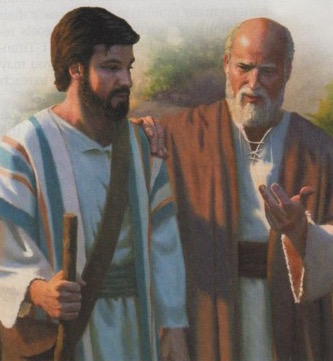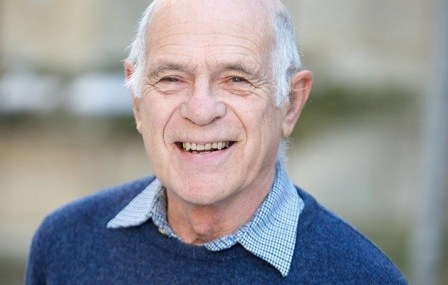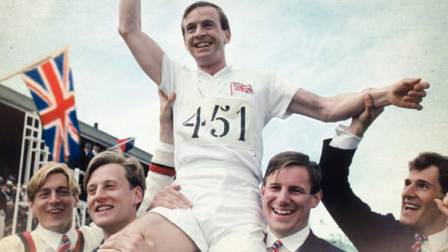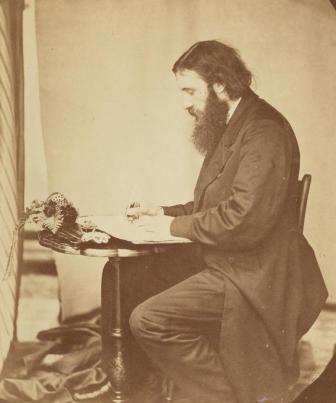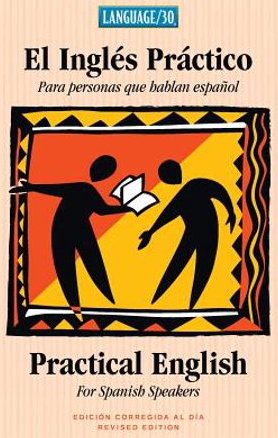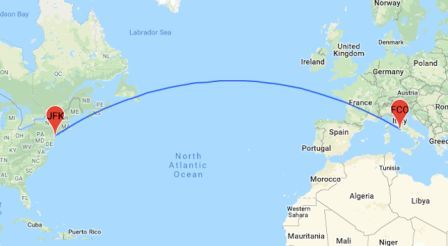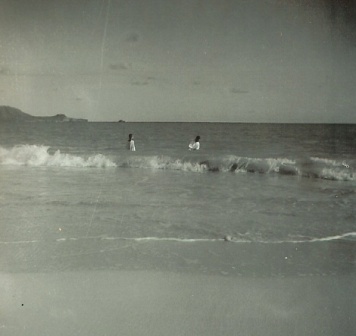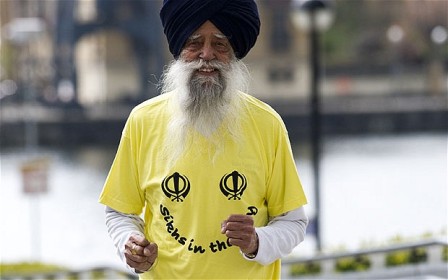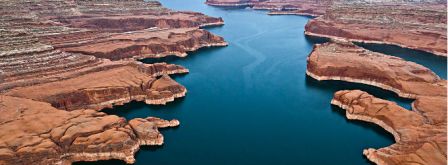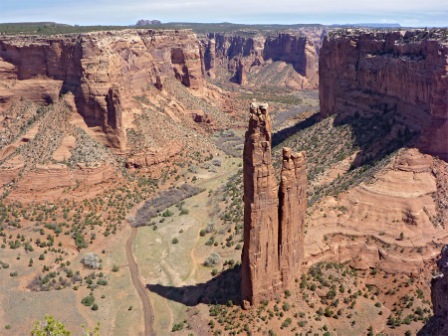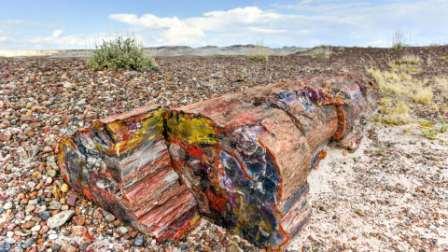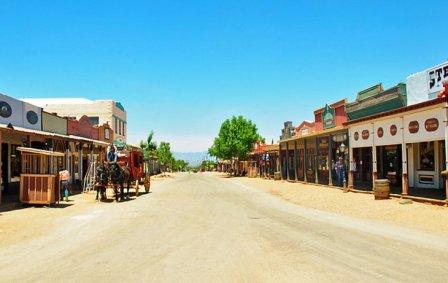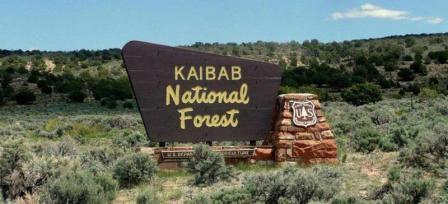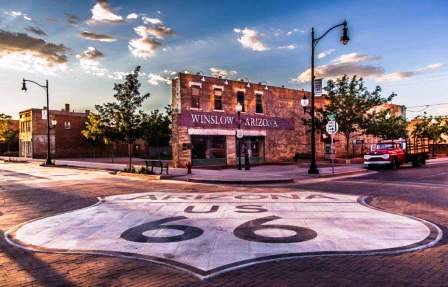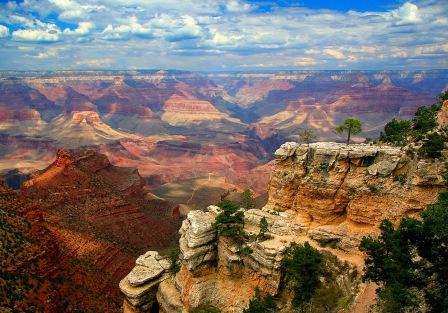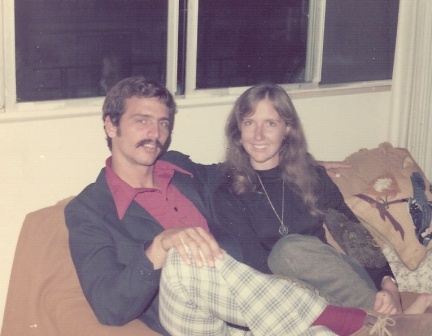October-June 2017 Blog Archives
|
|
|
||||||||
|
February 2019 Bog Archives Thursday, February 28 5:56 PM Yesterday I had lunch with a good friend who teaches Old Testament and Hebrew at the seminary. He had me for Greek years ago. Now we are colleagues. We are alike in so many ways, but we are also different in our age, background, and research focus. I had asked him to lunch not only for the fellowship but also for some teaching tips. "What are you doing in your classes that can make me a better teacher in mine?" We had a great time as we discussed each other's pedagogy. I was reminded of the old maxim that says if two people are exactly alike, one of them is unnecessary. We need the presence of opposites in our lives. Becky and I were like yin and yang. I imagine the same could be said about Priscilla and Aquila. As a married couple, you begin with what you have in common as believers in Christ. Then you allow God to use your different personalities and skill sets to accomplish your team goals. Monday begins our weeklong study of Philippians. From the get-go, Paul exalts diversity in the midst of unity. "Paul and Timothy, slaves of Christ Jesus." No two people were perhaps more dissimilar. Think of Paul -- strong, tireless, older, mature. And then there's Timothy, who was known for his "years, fears, and tears" (see 2 Timothy 1). Yet they interacted deeply with each other. And together they became individually and corporately more effective. One of the things I like to do in meetings is watch the Holy Spirit at work in a group of people with sometimes totally different ideas about how to do something, and see them all eventually come to one mind. We need people in our lives who are different from us. We need to be open to change. "Talent wins games, but teamwork wins championships." So it is in all of life. Cooperation is vital because it helps people achieve a common goal. If we all contribute something to the project, we can accomplish something bigger than ourselves. An artist's conception of Paul and Timothy.
11:58 AM I may live in the middle of Nowhere-land but I've got civilization within a 20 minute drive of my house. Here's my home-away-from-home in South Boston.
The Y has everything that a fancy health club has with a fraction of the cost. But note: Membership at the Y burns between 0 and 0 calories. You actually have to use it. Then it was off to the local high school track for a 5K run.
And no, you don't have to check in with the main office. Everyone is fine with runners using the track, and that includes the local police department. How cool is that? Whether you're 9 or 90, exercise can enhance your physical and emotional health. Why not give it a shot? P.S. We have a leadership retreat going on at the farm right now. Peace and serenity reign here. So glad they're able to enjoy Maple Ridge, our guest house. A retreat is a place where you pull back from the world and retool. I pray the retreatants leave this place more rested and clearer in their vision. 6:45 AM This week a bunch of us met up at the Neuse River Greenway for a ride but the trail conditions were not so good.
We made it though this section but turned back after we encountered 2 feet of standing water. I ended up returning to Wake Forest and got in 9 miles at a new trail (new for me, at least).
It's the called the Dunn Creek Trail.
To access it you have go under Hwy. 98.
After that, the bike path becomes a pure delight.
Eventually it will connect with the Neuse River Greenway via the yet-to-be-completed Smith Creek Greenway.
I was amazed to find the daffodils in bloom, but it's almost spring, right?
Finally, this was my view Tuesday morning as I walked to my class.
I never tire of the beauty of God's creation. P.S. Check out our linguistics conference web page. We just added the daily schedule of speakers. It kicks off in exactly two months. You won't want to miss it. Monday, February 25 7:35 AM News alert: We finally made it to contract verbs in Greek class.
They really aren't all that bad. And thank God the vocabulary is arranged according to paradigm type.
I need to thank the author sometime. Here are some of the sentences we're translating this week. Pretty cool if you ask me.
Now I'm back to training. The sun is shining and the sky is Carolina blue. Typically after a marathon I take lots of time to recover. But it's been two weeks already. I plan to get in a ride today if my schedule permits. I plan to get hot and sweaty all in the name of fun. That's all folks. Have a great week. Sunday, February 24 7:18 PM Starting a week from tomorrow, my Philippians students, one by one, will be walking the class through each paragraph of that magnificent book. Every time I teach an advanced course in Greek it's a fascinating experience. I think we teachers get the best of it. Not only do we get to guide our students through the steps of exegesis, we watch them grow in their ability to handle the biblical text. My book Seven Marks of a New Testament Church stressed the fact that all Christians, not just some, are called by God to serve, and that there is no distinction between clergy and laity in their standing before God, although there are differences in their areas of ministry. Likewise, I think my Greek students are perfectly capable of tackling difficult tasks. Arguably, lectures and books are not the best way to produce Christian leaders. The New Testament method of apprenticeship has much to commend it as an aid to learning. There is real value in guiding our charges and giving them practical experience. After all, their fruitfulness in ministry is not going to be determined by how well they did on their exams but on how well they will relate what they learn to the actual training of the people in their Christian communities. The essence of our learning is that it must be shared with others. Having taught Greek in 3 different institutions the last 42 years, I've noticed some changes in the steps outlined below. I now consider a paraphrase of the text to be essential. I love the emphasis on units of meaning larger than words. And why should exegesis stop with interpretation? Shouldn't it go on to application? Any attempt at exegesis that does not do that is doomed to irrelevance. Here, then, are the 10 steps we will use. What are yours? 1. After reading the Greek text aloud, provide for us a literal translation of your paragraph. 2. Discuss any significant textual variants in your passage. Which reading is most likely to be original, and why? 3. Words are the basic building blocks of your paragraph. Do a lexical analysis of any words you consider to be significant or ambiguous. 4. Discuss the syntax of your text, especially ambiguous constructions. Which interpretation do you prefer, and why? Don’t forget such matters as verbal aspect, word order, the presence of absence of the definite article, and special uses of the cases. 5. The clause structure of your text is very important for interpretation. Provide the class with a structural display (in Greek) of your paragraph and walk us through it. 6. Discuss any significant rhetorical features in your paragraph, where the “medium is the message.” 7. Tradition analysis is next. What sources (Old Testament or otherwise) did the author use in this passage? Does he quote from, allude to, or “echo” another writer? Discuss any parallels your text might have with other New Testament writings. 8. Now you are ready to provide an extended paraphrase in English of your paragraph that brings out, to the best of your ability and understanding, the meaning of your passage. 9. Offer suggestions as to how the text can be applied to modern life. Be specific. 10. Finally, provide at least three teaching/preaching outlines of your paragraph. These may be original with you or may be cited from other works. 6:38 PM If you've been reading this blog for any length of time, you know that bad weather doesn't usually stop me from running. Clouds and a light rain aren't a problem. Ice? That's another story. Today, after attending church, I got in a run at the High Bridge Trail, the scene of much past (and future) suffering, aka, ultramarathons.
Stop whining, Dave. You get to do this. Be grateful you can still get out there at your age. Even if the river is at flood stage.
Even if the roads are barely passable.
Even though you can't dump the fence debris in the burn pile.
Be grateful you get to run in the cold and the rain. Be grateful for your new fence. (Ain't she a beaut?)
Tomorrow's gonna be bright and sunshiny. I dare you, Dave, to get in a long bike before you teach your night class. Double dare! 8:20 AM I don't know how I missed it, but I read today that Michael Green passed away on Feb. 6 at the age of 88. As an actor yearns to play Hamlet, so I have sought to emulate the life and ministry of Michael Green in so many ways. Here was a high church Anglican who believed both in shared leadership and every-member ministry. Here was a prolific author whose main objective in writing was to equip "lay people" in their grasp of the simple truths of the Gospel. When I attended Biola in the 1970s, it was his book Evangelism in the Early Church that first got me thinking about the role that personal evangelism might play in my own life and ministry. Green loved both the church and the academy. For some reason he was able to navigate both spheres of ministry without becoming imbalanced in one direction or the other. It is said today that the Anglican church both in England and in the U.S. is stronger because of his life and work. When he was co-rector of the Anglican congregation in Raleigh, he worked tirelessly to "to clear the barnacles off of the Episcopal Ship and get rid of traditions that do not help." Above all, he called the church back to its commitment to missions and evangelism. "Gospel preaching with love and joy is dynamic .... Who will step up to the plate?" These things matter to me very deeply. It's too soon to assess the value of my life's work, but if anything good has come out of it I owe it in large measure to the influence of men like Michael Green. The ethos of a New Testament church is quite simple. It can be summarized under two headings: 1) ministry to one another through the Scriptures and the proper exercise of spiritual gifts, and 2) ministry to not-yet Christians through verbal witness and a sacrificial lifestyle. If all this seems too radical for traditional Baptists, let us learn from an Anglican churchman whose missionary heart was unsurpassed. I remember how amazed I was when I began reading his books or when I listened to him speak in chapel services. It would be a grave mistake to think that just because Michael Green could communicate to ordinary lay people he was a sloppy thinker. I have come away time and time again from his writings with a greater appreciation of the Great Commission and a deeper commitment to opening myself up to the powerful work of the Holy Spirit and to expect Him to be active in and through the lives of ordinary believers. We need more people like Michael Green in our churches and theological colleges. He was a brilliant theologian who always magnified the uniqueness and supremacy of Jesus Christ. He spoke widely and deeply in the world. I admired him for his passion for lost people and for his example of full involvement both in the church and the scholarly guild. Much of his life's work was done here in North America, and for that we all can be grateful. All I can say is that it has been a great privilege to have known such a great Christian and humble man of God.
Saturday, February 23 7:38 PM Looking forward to my Philippians exegesis class in just two weeks. The book of Philippians changed my life forever. My study of it, published in Novum Testamentum, showed me what Paul lived for, and what the Christian is to live for. It is our privilege to stand together in one spirit and contend as one person for the faith of the Gospel (1:27-30). Paul's language pictures an athletic team in which every team member has a job to do -- a joint effort, not an individual one. It is a life of selflessness, of giving rather than getting. And it is costly. Kingdom service involves sacrifice. In the words of Corrie ten Boom, "I learned to hold everything with a loose grip because it hurt when God had to pull my fingers away." Salvation involves more than accepting Christ as Lord and Savior. It must include a commitment to becoming servants in the world. The church of the New Testament does not merely "do missions" or "send" missionaries. It is missions. If we are to be the church we must go to all nations. Please do not learn this lesson as late in life as I did. 7:20 PM Just over a year ago, on New Years Day, 2018, I ran the New Years Double Marathon in Allen, TX. I had run the Dallas Marathon just three weeks prior to that. The course in Allen was interesting. It was paved concrete the entire distance. I had heard horror stories about running on concrete instead of asphalt, like we did in Dallas. Concrete is a very hard surface. That's why so few races are run on it. Plus, when the race started, the temperature was a mere 1 degree Fahrenheit. Little wonder so few of the registrants showed up for the race. Out of only 44 runners who finished the marathon that day, I came in at number 43.
When I think back on race day, the one thing that stands out to me is not the soreness or the blisters or the cold. The one thing that stands out to me is the way I was applauded as I crossed the finish line.
I will never forget watching a volunteer come up to me and place my medal around my neck. It's as though he was putting the cherry on top of a hot fudge sundae. I have never seen a bigger smile. My finish time was the slowest I had ever run a marathon in: 6:38:21. The winner's time was 3:00:38. But for both of us the dictum was true: Winning is being able to say, "I didn't quit." Each of us did our very best that cold winter's day in Texas. I was no different from the winner in terms of pain, effort, fatigue, shortness of breath, and joy. In every respect, everyone who ran that day was a hero. This is why every finisher warrants applause, perhaps especially those who are the farthest back. And this is why, when my race is done, I stand at the finish line cheering on my fellow runners. Not one of them has done less than their best. My friend, what has God created you to be and to do? A teacher? Writer? Publisher? Mechanic? Farmer? Entrepreneur? "Let each of you discover," says the head of Caius College, Cambridge, to the incoming students in the movie Chariots of Fire, "where your chance for greatness lies. Seize that chance, and let no power on earth deter you." Eric Liddell was a missionary statesman. But he was also fast and claimed, "When I run, I feel His pleasure."
What are you doing with your life that causes you to feel God's pleasure? My prayer is that you will find it so that, in this short life, you can accomplish your task, fulfill your unique vision, bear your own distinctive fruit, and proclaim your own exceptional message. 12:15 PM Today I started something I should have started years ago. With the help of my personal trainer, I began using the lat machines at the Y. I don't know why I avoided them for so long. Guess I was just used to the old-fashioned lat pulley system that gyms once had. Can you see it? Wow, I have a long ways to go. Talk about lopsidedness!
Frankly, there's no sense in even thinking about climbing the Alps again this summer unless my upper body is in pretty good shape. So let's just say I turned over a new leaf today. On the drive there and back it did nothing but rain. I'm afraid the rivers and creeks are about to overflow their banks again, which means the roads will start washing out unless there's a reprieve in the weather. Nate and I talked about the need to fertilize the fields but it ain't gonna happen until everything dries out, which may take some time. Even if we pulled our equipment with the tractors, their wheels would likely get stuck. In years past, this would also be the time of year for me to get Becky's garden beds ready for planting. Becky loved to garden. It all started when we lived in La Mirada, CA, where she rented a garden plot in the community garden. Then we bought a house on a third of an acre and began growing all of our own vegetables and canning our own fruit (we had 21 fruit trees). Today, one in three U.S. households grows food either in a garden or in a community garden bed. From patio tomatoes to raised garden beds, Americans are into gardening. I remember Becky getting up early during the summer months to weed her garden beds. And when harvest time came, we began picking. We discovered that August and September was the time of the year when yields were the heaviest. Canning had to be done immediately or not at all. Regular picking was also a routine around here. If not picked, our zucchini would go from slender cylinders to giant footballs within a few days. "He who gathers crops in summer is a wise son," says the Bible (Prov. 10:5). When you and I neglect the garden of our lives, they began to sprout weeds. I wish I could get my gardens back to working order again, but my kids live too far away to use them, and I'm traveling too much to be able to care for them properly. That said, there are plenty of other "gardens" in my life I can tend to. Help me, Lord, to keep my part of the family garden in good condition, and make me the faithful gardener I need to be from spring planting to summer harvesting. P.S. Becky once wrote about her garden in her poignant post called Going for the Deeper Joy. 7:32 AM This morning, in the midst of my chores and tasks, I paused to read a couple of sonnets written by George MacDonald, assembled for us in a magnificent booked called Diary of an Old Soul.
This one seemed particularly fitting to my circumstances:
Beautiful. Wonderful. I imagine even better if we could hear it in the author's rough Scottish brogue, with all of its passion and faith. 6:20 AM Random musings .... 1) Not everyone agrees that all of the Prison Epistles were written from Rome. For a minority perspective, see Bo Reicke's Caesarea, Rome, and the Captivity Epistles. Reicke was my Doktorvater in Basel. 2) We owe John Anderson a great debt for his sound advice on applying to Ph.D. programs. 3) Looks like I live in the gluttony capital of America. 4) This weekend I'm rereading a great book in German. It's called Englisch für Fortgeschrittene (English for the Advanced). A great way to learn a foreign language is to study it backwards.
5) Check out Lee Iron's Tips for Reading the Greek New Testament. 6) The best hiking trails in Virginia. #1 is still my favorite. 7) What's in a president's name? 8) A 360 degree view of the Breithorn summit in the Alps. Incredible. I stood on this peak not too long ago. 9) Should you start with internal or external evidence when evaluating a New Testament textual variant? The discussion continues here. 10) Quote of the day:
Read (or watch) 7 Reasons to Study Biblical Hebrew and Biblical Greek. Friday, February 22 7:55 PM I just registered for the Tobacco Road Marathon in Cary on March 17. I ran this marathon last year as well. That race was my 8th marathon since I began running marathons 8 months prior to that. That was an AWESOME weekend. I wasn't super happy with my race performance, but it was a blast running in a "local" race. The course was fast and flat but I couldn't really take advantage of that after I bonked at mile 20. I seriously think those last 6 miles mentally lasted as long, if not longer, than the first 20. This year's Tobacco Road will be my 14th marathon and should be a good warm-up to the Flying Pig in Cincy (#15, Lord willing). For now, however, I'm taking it one day at a time and one run at a time. 6:54 PM Lunch with my daughter and her family, and dinner with my son and his family. I like my family -- how we relate to each other, and how we're there when we need each other. Now I'm off to read a new book about running. The rain is still falling here big time, so it's fun to cozy up to a good read. Things are pretty simple at home these days. Love God. Love your family. Love others. The grandkids still talk about Mama B. "Death leaves a heartache no one can heal, love leaves a memory no one can steal" (from a headstone in Ireland). That, my friend, is a beautiful thing.
10:34 AM The rain today has given me the chance to get caught up on my reading. Thus far I've finished Muggeridge's classic The End of Christendom -- which is really a paean to Pascal's Pensées -- and Stott's no less classic Christian Mission in the Modern World.
Muggeridge's book is actually the Pascal Lecture on Christianity at Waterloo University in Canada. And the first thing he says is to pick up a copy of Pascal's Pensées and read it -- in French! -- which is exactly what I did.
Then it was back to Stott's magisterial work on what missions is from a biblical perspective. His main task is to tear down the wall between evangelism and social action, between the Great Commission and the Great Commandment, between serving in word and serving in deed. Stott sees a "synthesis between evangelism and social action" (p. 39). Social action, he writes, is a partner of evangelism. "Both are expressions of unfeigned love" (p. 43).
He goes even further. Who is a missionary? The foreign missionary? Yes of course. The pastor who supports foreign missions? Yes indeed. But there's more.
Indeed, "if we are Christians we must spend our lives in the service of God and man." In two months, my daughter's husband will be going to India on a short-term mission trip. He's been there numerous times. Mind you, he's not a professional missionary. He runs his own business in the secular world. But he is no less a missionary than the foreign missionaries we support through our offerings every year. The same is true of his wife, who will stay home and "hold the ropes" while freeing her husband to serve Christ in that faraway land. And who is to say that her "ministry" of taking care of their four children is any less a Gospel work than the ministry of her husband in Bagdogra? We are -- those of us who follow Jesus in obedience -- fulltime missionaries and in fulltime ministry. I love that sign over a kitchen sink: "Divine services performed here three times daily." In the words of Stott,
And that means all of us. "The only difference between us lies in the nature of the service we are called to render" (p. 47). I deeply believe this is one lesson the church needs to relearn today. Our generation is so hamstrung with the notion of professionalization that we no longer recognize God's good gifts staring us in the face. What a loss. We very much underestimate the potential of the pew. Professionalizing ministry sets us up for short-term success but long-term failure. So I guess that means that each of us has to step up to the plate and join the cause of global missions. My kiddos get this. Such self-sacrificing service attracts their generation as much as arrogance alienates them. Trust in the Holy Spirit can't be used as an excuse for personal apathy. What is forbidden us is self-reliance. Joel will go to India relying upon the Holy Spirit. And Kim will stay at home relying upon the Holy Spirit. That's because mission includes both evangelism and social action, both going and staying, both preaching the Gospel and washing dishes. Mission is simply the loving service that God sends all of us into the world to render. 8:12 AM Imagine someone who's used to biking several dozen miles each week but can't bike because of the rain. That's me. This week I got in only 10 miles on Monday. Yes, I'm feeling withdrawal symptoms. Like with anything in life, you tend to get into a groove. Consistency is everything. Just think about the things you do every day. My list would include:
Biking's not on the list, though if I could, I would bike each and every day. I love the sport. My body adapts quicker to cycling than to running. Running involves only certain muscle groups. But when you bike, you begin to create muscle tone in the most unexpected places. I have two triathlons scheduled for 2019, so cycling also falls under the "training" rubric. By the way, in 2018, I totaled 4,207 miles on my Map My Run app. That's the distance between New York and Rome.
My weekly averages were:
About a third of those miles involved biking. I suppose nearly all of my rides have taken place at one of three trails: The Neuse River Greenway in Raleigh, the High Bridge Trail in Farmville, and the Tobacco Heritage Trail in LaCrosse. I'm so grateful to God for these trails. I never, as in NEVER, bike on roads. I may be dumb but I'm not stupid. The truth is, I'm scared to death of how people drive nowadays. What else? In about a month or so I'll start gearing up for my next marathon, the Flying Pig in Cincy. The big day is May 5. It takes me about 3 months to train for a marathon. That includes weight training. Running requires upper body strength as well as strong legs. That's because a big part of running involves pumping your arms. And in Cincy, your arms really have to chug-chug-chug when climbing Mount Everest (that's what I call the 2.5-mile climb to Eden Hill). There is definitely a spectrum of difficulty with every race you run, but the Pig is famous for its sharp incline at around mile 6. All of this simply means that I will have to train harder and smarter if I'm going to PR. The greatest lesson I've learned through running is that you don't have to be afraid of anything. That's why a marathon is more than a bucket list project for me. It's my way of giving myself an opportunity to take a giant leap into the unknown. While my body is running in one direction, my mind is sprinting in another. A race is one of the best ways to test your personal limits of ability. In life, no one knows exactly what the future holds or what is going to be needed to make it to the finish line. Running makes us athletes in all areas of our lives, trained in the basics of living and therefore hopefully ready for whatever comes our way. Of course, life is far more than exercising. Everything in moderation, right? Hang in there. Dave Thursday, February 21 7:55 AM Although it's reductionist, I categorize most books as being either repetitive or novel. Last night I began reading Eugene Petersen's Run with the Horses: The Quest for Life at Its Best. Already its tone troubles me. He begins with a rather lengthy (and pessimistic) quote by Robert McNamara.
He adds:
For the love of Job! Sisters and brothers, may I inject some opinions here? I might actually believe what McNamara was saying if in fact my own existence bore it out.
Bless my heart. Here is the truth. There is plenty of this all around us, if only we had the eyes to see it.
What keeps me from pessimism is reality, the reality of God's blatant goodness in our fallen world, the doggone irony of how our dull, monotonous lives are so often "surprised by joy" (C. S. Lewis). We invent a worst-case scenario and it muffles us. If stepping outside your mind to self-observe the highway of grace is impossible for you, come to my house and see the new fence my kids built for me out of pure love. Because that's WJWD. Yes, life can be mind-numbingly hard. Yet somehow, against all odds, we just keep plowing ahead, eyes fixed firmly on Jesus. It is possible to bend the universe too sharply toward our own fears and anxieties? Anyone who focuses on the world's "decrepitude" is bound to become decrepit. A son showing sacrificial love toward his aging dad, a student struggling through failure to pass the course, a divorcee adapting to a new environment, hard work, failure, simplicity, gratitude, perseverance -- there are too many virtues awash in our fallen world to even begin to list here. God's faithfulness ought to melt our hearts and dampen our eyes. His goodness should lead us to repent of our morose thoughts about life. The passions of youth may subside, but we can't spend our days by the casket of things past. There is a new day to be greeted and a new chapter to write. Indeed, if you take eternity into account, we are merely on the Introduction! Wednesday, February 20 7:45 PM This and that (in pictures): Having Mexican for lunch with some colleagues. Guys, your friendship is so appreciated.
A doctoral student of mine teaching my Greek students Tuesday night. Huss, you did a great job.
Thank you, Amazon Prime. 'Nuf said.
While I was on campus, my son and his wife stopped by the farm and replaced my old cedar fence.
Thank you, Nate and Jess. It looks beautiful.
The boys helped, of course, especially by taking good care of Sheba.
Need I say more? This is exactly my life, and I love it. Seriously, my thanks to all who have made my week so special. Bring on the next race! Monday, February 18 8:42 AM Does running in one ultramarathon make you an ultramarathoner? If it does, well then, I guess I'm an ultra runner. Barely. My 50K ultra last year was the longest, hardest, and most challenging race of my life.
I definitely started out faster than I should have. After the 16 mile halfway point people started passing me. And passing me. I was feeling great for a while and then reality set in. The second half was much harder than the first. Plus the trail conditions weren't all that great. Still, it was an INCREDIBLE experience. Although I contemplated quitting on several occasions, the Lord kept allowing me to muster energy from somewhere. The final road to the finish was a slight uphill. I ran with all my heart to get there. When I finally crossed the finish line the race director himself was there to shake my hand. That had never happened before. I couldn't wait to hang out at the refreshment table with my fellow runners and bask in the sense of accomplishment we were all feeling. The question today is: Should I try and do another ultra this year? Upon reflection, I've learned that ultras tax your strength and endurance to the limit. Only my stamina and hardheadedness got me through. But my lack of raw physical strength really held me back. Still, I'm insanely grateful to God for the experience. The ultra runners welcomed me with open arms. It's the humans you connect with along the way that make running so worthwhile. At the end of the race you're tired, but it's a good tired if you know what I mean. It's like how I feel after getting up hay bales. Farming is hard work but it's good work. It puts you to bed at night with a good tired. So right now I'm in uncertainty mode. I still need to find balance between my running life and the other lives I live. An ultra is all about survival. It's all about moving forward. Run if you can. Walk or crawl if you must. I want to do this. I love watching people push themselves beyond their limits. There are two races I'm looking into as both are fairly close to the farm. The first is held at the Tobacco Heritage Trail between LaCrosse and Lawrenceville, VA. It's called the Thoroughbred Races. The second race is held on the same trail where I ran my ultra last year: the High Bridge Trail in Farmville. In this race you run at night, hence the name Night Train 50K and Half Marathon. Both seem to be very well organized. This is not to say I won't be doing road marathons this year. On deck are the Flying Pig in May and the Chicago in October. But I would like to do another long run this year. Any advice? That's all I've got for now. Time to put on my teacher's hat! 8:04 AM This is a great book.
Someone needs to translate it into English. (Not me.)
Sunday, February 17 7:10 PM I'm warning you: This post is long and boring and I won't be offended in the least if you leave now. In the Greek classes I teach we discuss words and how they take on meaning. It's all part of an effort to make classes practical and motivational. At the same time, there's nothing easy about lexical analysis. Much of it is undoing damage. Take the well-known and much-discussed fallacy of etymologizing — determining a word's meaning by its parts. For example, some insist that a New Testament church is "called out" from the world — separate, if you will — based on the etymology of the Greek word ekklesia, which is comprised of two parts—ek, "out of," and kaleō, "I call." Hence the church is a "called out" organism. It is to be different from the world. And believers are to separate themselves from the world. In New Testament usage, however, the word ekklesia never quite had this meaning of "called out ones." Normally it was used to describe a group of people that had something in common. At times this group met, and then it was an ekklesia. At other times it wasn't meeting per se, but even then it was an ekklesia. This term was used in contrast to ochlos — a term that describes a group of people that have come together and have nothing in common. Ochlos is often glossed as "crowd" in English, and that is indeed a very good rendering. How, then, should we translate ekklesia into English? When I pose this question in my classes, I usually get several excellent responses: "gathering," "assembly," "congregation," and the like. All of these are fine, but none of them in my opinion captures the essence of what a New Testament ekklesia is. I prefer the term "community." Church is not simply a group of just any people, and it is most certainly not a building. Instead, I like to think of a church as a space in which all of us are ministering, praying, preaching, teaching, singing, caring, loving — a family if you will. Our motto might be: "We're all in this together. So let's do it together." This is the community to which we, as followers of Jesus, are giving ourselves with our whole hearts. This is our "church" — a diverse, global, caring paean of praise to our Creator, Redeemer, Sustainer, Lord, Master, and only true Senior Pastor. As you know, in recent years I've become part of a similar community, one known simply as the "running community." The similarities between this community and the "church" are legion. As soon as I began running competitively, I knew I had joined the ranks of hundreds and thousands of other runners. From my very first race this sense of community became instilled deep within my psyche. Even as a novice runner, I knew I was not alone. Every experienced runner remembers when they were a beginner just like you, and so they are eager to reach out to the newbies among them. You soon have a group of running friends you look to for advice — where to buy the best running shoes, how to train properly, how to avoid injuries, how to handle anxiety before a big race. Being part of this community helps each of us become a better runner. As runners, we value what we can become and not simply what we look like. We are not defined by our age, our t-shirt size, our weight, or our medallions (or lack of them). We are all fiercely independent and pursue individual goals, and yet paradoxically we truly believe that we are all in this together, and it shows. Just show up to any race and observe the runners. I'm not in the least surprised, therefore, to find similarities between a running community and a community that defines itself on the basis of the traditional creedal values of faith, hope, and love. Both runners and Christians have a lot in common. For one thing, we both ask silly questions. A Christian in a bookstore asks the salesperson: "I'm looking for a Bible for my mother, but I'm not sure who the author is." A novice runner asks you, "How far is your next 5K race?" As you can see, both novice runners and novice Christians have a lot to learn. We are people who pursue excellence and who seek to be dedicated to something wholeheartedly and to give ourselves to some project without any reservations whatsoever. Our actions are always impelled by some good we want to attain. And to achieve our goals, we often have to endure suffering and pain. An athletic race is a place where we discover strength and faith and courage we never knew we possessed. We are runners. It doesn't matter how fast we run or how far we run. It doesn't matter whether we are running in our very first race or have been running for fifty years. During a recent 5K race I met an athletic-looking young man who was pushing his infant child in a stroller. We had finished the race about the same time. I knew he could have run much faster had he not been pushing a baby carriage. He told me something I'll never forget. He said, "Sometimes having the best time at a race has nothing to do with how fast you ran." I will remember that until the day I die. I wish I could have given him "The World’s Greatest Runner Award" that day. Folks, the Christian life is a race we run together. It's no different in the running community. "Hey guys. I've got a hip labral tear. Anybody had any experience with this?" Or (in the church), "As a mom, I have a tremendous sense of responsibility to teach my children about truth and grace and God. Should I make my children read the Bible? What do you think?" The point is: We are there for each other. As I've gotten older, I've found my priorities changing. I find myself wanting richer, more intimate and complex relationships with my family and friends. Like women, men have a primal need for closeness. We were created for relationships. Men discover that as they move into middle and older age they also move from competition to connecting. The best corporate managers are those who foster networks of connectivity. The best professors, too, prize being hands-on guides and mentors to their students, and not only disseminators of information. Before Becky died, she was the one who did most of the connecting with our kids on an emotional level. But as I've come into my own as a widower, I've come to a realization that emotionally connecting with my kids and grandkids is deeply enriching. One of the things that my loss of Becky did for me personally was to make me value and cherish my family more. It's like taking the barnacles off. Now is the time in life to enjoy my family. The real ideal of manhood here is "servant-leader" in which we men discover our nurturing side. The apostle Paul had a lot to say about love. He knew that love is not blind. Nobody is perfect, least of all those closest to us. What is necessary in love is the ability to see others as God sees us. And to love others correctly, we must first love ourselves. The self must first be strong and whole before we can offer true and lasting love to others. Love is a positive sum game where both sides can and should win. Which brings me back to the notion of community. An athletic team has goals that far surpass the aspirations of its individual players. And that's true of all of life. As I look forward to the winter of my life, I want to be a man who joins the "I" to the "we," whether that's in my family, my church, my profession, my mission work, and even my hobbies. Saying I want to do this is quite easy. Becoming the self I want to become is quite difficult. But every healthy relationship at least makes an attempt to meld the "I" with the "we." Well, that's the end of my ridiculously long blog post. If you're not bored to tears, then clearly you're a blog junky like me. If you made it to the end, you deserve a cookie! 5:14 PM William Varner (Philippians, p. 38) on Paul's "For me to live is Christ, and to die is gain":
Spoken beautifully. 8:58 AM In just 3 weeks my Greek course on Philippians begins. I've asked the class to listen to the entire book using my audio files. Why not listen along?
By the way, I use the so-called Erasmian pronunciation. Other pronunciation schemes are used nowadays as well. Which is the best? So hotly debated is this question that we've asked Randall Buth to lecture on "Pronunciation" at our upcoming Linguistics and New Testament Greek conference. Randall is flying all the way from Israel to join us. I hope you can join us too. Speaking of Greek, I'm sure you're all familiar with the legend of Pheidippedes. He was the runner who announced to the Athenians that the Greeks were victorious over the Persians at the Battle of Marathon. The distance between Marathon and Athens was about 25 miles.
As the legend goes, upon arriving in Athens, Pheidippedes announced
and then promptly died. My question for you: How would you translate this Greek verb?
Alas, this goes to the heart of the debate today over the significance of the perfect tense in Koine Greek. Addressing this topic at our linguistics conference will be none other than Mike Aubrey, who edits the website Koine Greek. Yet another good reason to attend. P.S. On the tomb of the Athenians in Marathon is an epigram by Simonides:
Do you like the English rendering? To me, the second line is somewhat of a loose paraphrase. How would you render the Greek? Saturday, February 16 5:02 PM Phil. 1:27-29 in the Dave Black Version:
What Paul really wrote:
Lord, forgive me. The head should not grow when the hands and feet shrink. 11:32 AM I recall once reading about a church in Africa that baptizes new converts in the ocean. The candidate is literally thrown into a wave "in the name of the Father," at which point he or she is washed back to shore. (Can't you just picture that?) But it gets even better. The church leaders quickly pick up the now drenched convert and throw him or her into another wave "in the name of the Son." This is repeated a third time, "in the name of the Spirit." (Interestingly, as a lifelong surfer I've noticed that waves often come in sets of three.) The point apparently is not simply to emphasize the name of the Triune God. In baptizing people this way, converts are given a tactile baptismal experience that initiates them into the struggle of the Christian faith. "Hey, follow Jesus if you want to, but man, it's going to cost you!" I'm reminded of Paul’s famous "encouraging message" to the believers in Asia Minor. After urging them to stick with their new-found faith and not give up, he said, "Anyone signing up for the kingdom of God has to go through hard times" (Acts 14:22). I can't resist the temptation to draw yet another analogy to running in a race. In many ways, that first race was your easiest. After all, that's where you got your very first PR (Personal Record). Now that you are a "runner," however, the real struggle begins. Some days you just can't get out of bed to do it. You struggle with willpower, with sore feet, with aching quads, with lack of motivation. I'm not proud to admit it, but I have these struggles almost every day. As Unknown once said, "My sweatpants smell like give up." Life can be hard. Actually, life is hard. On race day my legs often feel like they weigh 200 pounds each. You have to learn to push the doubts aside and just keep on going. And I will. Because I'm hooked. Even with all my self-doubts and infirmities, I am a dedicated runner. My race times might not make salacious headlines, but for me they are symbols of victory. I'm overwhelmed by the joy of it all, despite all the "hard times." Racing, like life, is just plain tough work. But the task is made easier when I consider that everything I have is a gift from God, freely bestowed, so I should freely give it back in return (Matt. 10:8). I never want to back off from doing something because it looks too hard or because I don't want to "fail." Fact is, Jesus helps us in our Christian walk, and He's always there to pick us up should we fall. Baptism means death. It means, "Hello! Ready for a fight? Ready to face temptations that blitz you daily? Ready to be a Christian in a non-Christian world? Ready to love your neighbor as you love yourself? Ready to exercise love, joy, peace, patience, kindness, goodness, faithfulness, gentleness, and self-control — the marks of a true Christian?" No one is ever ready to do that. But you have to start somewhere. You get saved, you get wet. Baptism is your public pledge of total and complete allegiance to your Lord and Master and Savior and Redeemer and Best Friend. And, as a Spirit-filled Christian, you should be able to keep on running your race to the glory of God. Awaiting baptism at Kailua Beach at the age of 8.
8:42 AM To continue our discussion of internal evidence. This morning I was studying Mark's account of Jesus' temptation. As everyone knows, Mark uses an unusual verb to describe the way the Spirit "sends" (ekballei) Jesus into the wilderness.
Some have latched onto this verb as evidence for Markan priority. They call ekballei a cruder term than Matthew's "Jesus was led" or Luke's "the Spirit led Him." Then they ask: If Mark came after Matthew and Luke, why would Mark have taken perfectly normal diction and changed it into a cruder form of expression? My own sense is that Mark's ekballei is vivid rather than crude. Note also the fact that it's in the present tense. Mark loves the historical present. In other words, I see nothing in Mark's language to suggest that his account is either prior or posterior to the accounts of Matthew and Luke. Mark's language is simply different.
Yes, the verb ekballei is a very strong one, but there's nothing crude or inferior about it. That translators have difficulty in rendering the verb into English is no argument for its priority either. Every Gospel writer has his own idiolect. (Take John's habit of using synonymous words synonymously, as with agapaō and phileō). I had two translations open before me this morning. The Good News Bible renders ekballei as follows:
And here's the new Delitzsche translation:
I think both miss the point. For ekballō I might prefer "thrust." Or perhaps "compel." One thing I value greatly about my Greek students is their willingness to grapple with really difficult issues of translation. Too much in our American educational system is based on lectures and final exams. There's not a lot in the way of reading texts as texts and then struggling with the best way to translate these ancient texts into understandable and idiomatic English. I find that our system of education does not encourage independence of thought as much as the system I was used to in Basel. There's a large gap between classroom and church. That's one reason I began a Greek class in a local church in my home town of Kailua a couple of years ago. I also hope to do the same in Phoenix shortly. I want my students to see how utterly practical Greek is for their understanding of everything about the Christian life, including our understanding of something as basic as the Great Commission. (This subject will comprise one of the three talks I'll be giving at Piedmont University in April.) Today, I am intrigued to note that there is a movement toward returning biblical education to the local church, the place where I suppose it all began two thousand years ago. The essence of the Christian Gospel is that it establishes local communities of Jesus followers who contend intelligently for the faith. No one can become a medical doctor without clinical experience. The preparation of Jesus-missioners languishes a long way behind because practical training is often discounted in favor of a more formalized education. That's one reason I'm so excited when one of my Greek students tells me he or she is teaching Greek in their local church. The goal is to take what we learn in seminary and pass it on to others. I call it hands-on Christianity. The remarkable thing about my time in the Word this morning was how simple it was. You just grab your Bible(s) and a cup of coffee and go to work.
Any of us can do this. Call it a "devotion" if you want to. But getting to know Christ and the power of His resurrection and the fellowship of His sufferings is a goal that will keep us occupied from here on out! Friday, February 15 6:40 PM Today I read a delightful essay called Writing on the Tough Days. The author is very insightful. I really didn't want to write today, but here I was, making one last pass through my latest book before sending it off to the publisher.
Michael Green once called himself a writer by mistake. I could say the same thing about myself. My first passion is the classroom. I hit the ground running in 1976 and it really took off. Books, however, occupy a good deal of my time. Mostly reading them. Sometimes I write them. Not many. And not necessarily the books I set out to write. My beginning grammar and my second year grammar, for example, were invitations from the publishers. Later on I wrote even more textbooks. At first I wrote as though I was writing. Nowadays I write like I speak. With all of my books, the publishers did a splendid job. Me? I'm an okay writer I guess. If there's one discernable theme in my writing, I suppose its simply the attempt to write for normal, everyday people who want to address serious scholarly issues but who feel intimidated by scholarship. This latest book of mine almost wrote itself. I don't expect it will have a far-reaching circulation. I wrote the book mostly because I needed the encouragement as a runner. They Will Run and Not Grow Weary stresses the fact that we, as Christian runners, are called to serve the Lord through our running. Running is an act of worship, since worship, according to the New Testament, is something we do 24/7 and not just on Sunday (see Rom. 12:1-2). Running, therefore, is a ministry for me -- an attempt to care for the temple the Lord has given me. The temple, by the way, is feeling a wee bit run down today. Nothing major -- just a few sniffles and some sneezing. Trying to run with cold symptoms is usually not a very good idea. I'm not (too) disheartened. I know I will heal up. I'm just fatigued. Which is why I went out for dinner tonight. I just couldn't bring myself to cook. Besides, they're running a special on arroz con pollo.
This was my way of rewarding myself for the accomplishments of the past week -- and for buttoning down and getting some writing done today. If I'm actually sick, I'm probably not going to run or bike for a few days. I can't "push through everything" like I once did when I was younger. I know this is the time of the year for colds. If you're suffering from one of those colds, I hope you're on the mend soon. Okay. Time for another Airborne ... and a good movie. 9:15 AM In one of my talks at Phoenix Seminary I quoted the Scottish proverb that says, "Greek, Hebrew, and Latin all have their proper place, but it's not at the head of the cross, where Pilate put them, but at the foot of the cross in humble service to Jesus." Oh, I do hope the message came through loud and clear. Seminaries do not exist for scholarship. Yes, we need to study the Bible, and study it carefully. But the goal of the careful study of the Bible is not the careful study of the Bible. The goal is to become obedient Jesus-followers who feed the poor and open our homes to strangers and share Jesus with the lost and live lives characterized by scandalous love for our enemies. Show me a New Testament teacher off mission, and I'll show you somebody who has no concept of what the New Testament is all about. 8:45 AM There is something wonderful going on the world of New Testament textual criticism these days. I was reminded of that fact this morning when I found myself perusing these websites: One name you will often see in these sites is that of Peter Gurry, a scholar I had the honor of meeting last weekend in Phoenix. Peter, it seems to me, represents a growing trend of those who are willing to acknowledge the value of the Byzantine text even while questioning some of the tenets of the Byzantine Priority Theory. In his essay The All-or-Nothing Problem with Byzantine Priority, he puts into words a concern I've had for a very long time, namely, the highly subjective nature of arguments for or against a certain reading based on the internal evidence. For me, the internal evidence -- be it when we are discussing textual criticism or the Synoptic Problem or the authorship of a New Testament writing such as Hebrews -- is not probative but corroborative. I emphasized that point last week in my NT class when we were discussing the Four-fold Gospel Hypothesis that I espouse. Matthean priority, in my view, is based solidly on the external evidence, but it can also be corroborated by the internal evidence (for example, the "zigzagging" effect caused by Peter's following now the scroll of Matthew, now the scroll of Luke). Likewise, as far as textual criticism is concerned, I argued in my little book on the subject that the reading "in the prophets" in Mark 1:2 is unlikely to be original because it is found in only one of the three major text types. Here the Western and Alexandrian texts ("in Isaiah the prophet") combine against the Byzantine. One could argue additionally that the internal evidence supports the reading "in Isaiah the prophet." I've heard it said that since the passage actually quotes two prophets, Isaiah and Malachi, the change to "in the prophets" makes perfectly good sense. A Byzantine priorist, however, might demur by arguing that "in the prophets" was original but was changed to "in Isaiah the prophet" because, in actuality, there's only one direct quote in the passage (from Isaiah); the Malachi text is only alluded to. I get that argument. It seems unlikely to me, but that's a possible reading of the internal evidence. Peter Gurry argues that the Byzantine Priority position would be "more consistent if it said that 'transmission considerations' (i.e., external evidence) is decisive and that the internal evidence is only needed secondarily for large splits in the Byzantine witnesses." He adds:
My own view is very close to Dr. Gurry's. Hence I've argued for the originality of Byzantine readings in places like Eph. 1:1, Matt. 5:22, Mark 6:20, and John 3:13, not because they are Byzantine readings per se, but rather because these readings enjoy a greater geographical distribution than their competitors. To return to the tune I've been playing: To me, the external evidence seems to be probative in almost every instance, while the internal evidence seems to be corroborative. Anyhow, I hope you'll bookmark the three websites I linked to above. Each takes a stuffy, somewhat complicated subject like textual criticism and makes it palatable. P.S. In my book on the kingdom (Godworld), I'm having to work through a first-class textual variant in Matt 6:13. Do the words "For Yours is the kingdom and the power and the glory for ever, amen" belong in the text? I'm finding Jonathan Borland's essay very helpful!
Thursday, February 14 1:14 PM Goats are always full of surprises. Anyone who owns goats will tell you that they are incredibly smart. They're always looking for greener grass too. Goats will go over, under, or through at the drop of a hat. Here's the view I had as I was driving down my driveway this morning. "Lookie here! We've escaped! Yay!"
Goats rub on fences and buildings, and today my goats managed to open a hole in the barn siding. Out they merrily went! I kid you not. (Awful, I know.) Ya gotta give 'em credit, though. They did manage to escape. However, here at Rosewood Farm we have a non-escape policy for all of our animals, including the Boers. Needless to say, it took a bit of coaxing to get them back into the pasture, but my persistence eventually paid off.
People raise goats for all kinds of reasons. Some for their meat (we did this for many years). Some for their milk (we never had milk goats). And some just because they make wonderful pets (except when they're in escape-mode). In case you've never noticed, I love animals. As in really, really love them. Who needs TV when you can watch the goats and your other farm animals doing their thing? But I don't want them getting out and walking down to the road, where they could cause havoc (as some goats did recently in an Idaho suburb). Plus, I'd really like to remain on good terms with my neighbors. I'll close with some (lame) goat jokes.
Say whaaaat!!???
8:30 AM When was the last time you had a good, long rest? My mind is fried from teaching and speaking so much and my body is tired from being on the go for so many days in a row. I just sit here at my desk with a wild smirk on my face that resembles one of those "You're weird" emojis. I can't help but laugh at myself. "Remember, Dave, you did this to yourself." This morning I got out my old Good News Bible (oh, do I love this translation) and read John's Upper Room Discourse.
The Greek is even more interesting, of course. Many questions arise. In 14:1, does the Greek mean "Believe in God; believe also in Me" or "You believe in God; believe also in Me"?
In 14:14, does Jesus say, "If you ask Me for anything in My name" or "If you ask for anything in My name"?
In 14:17, does Jesus say about the Spirit, "He remains with you and is in you" or "He remains with you and will be in you"?
See how relevant Greek is? But what struck me the most from my reading this morning was the use of the so-called "first class condition" in 15:18: "If the world hates you [and IT REALLY DOES!], just remember that it hated Me first."
Hear this: Persecution is alive and well on this old planet of ours. Just this week I received news of extreme persecution in a country I've visited 17 times. Tumultuous waters are everywhere. Opposition to Christ is a stream that has become a current that is turning into a raging flood. At the same time, the body of Christ is mobilizing in unprecedented numbers to deal with the crisis, not through military might but by fearlessly proclaiming liberty to the captives. I think that the sooner we untether from the American Dream and the trap of "more," we as a church in America will truly be able to speak truth to power and overcome evil through loving deeds of towel and basin ministries. As I hear stories of courage in the face of enormous persecution, I applaud my brothers and sister in these lands. Honestly, no one can be sure what the future of the church in America will look like. But our baseline as a community of Jesus-followers never changes: Love God, love others. This is everything. Today, as I "rest," I've got a long list of tasks to complete, including reading a Ph.D. prospectus, working on the quizzes for my Philippians class (which starts in a couple of weeks), and working on my 2018 taxes. My next marathon isn't until May (this race) so I'm going to take a long break from marathon training because it's such a huge time commitment. Right now my body feels like rubber, and I'm not good for anything except to lie around the house munching on donuts. I also want to start incorporating recovery weeks into my training schedule, not just recovery days. I want to do as much cross training as I do running, and I want to manage my life better. I have no idea what living out the kingdom might look like for you. You have an entirely different set of factors in your life. There isn't a list we all have to follow. I just want to say, I'm on your team. I'm pulling for you every bit as much as those dear folks along the sideline at last Saturday's marathon were cheering us runners on. We can rest in Him without becoming lazy or unproductive. The goal is to cultivate a quiet heart in the midst of a crazy world. Rest. Recover. Carry on. Wednesday, February 13 7:10 PM Wowsers. This has got to be the longest I've ever gone without blogging. Well, probably not. But it feels like the longest. Why? Because I've got so much to share with y'all. Where should I start? I don't really know. So I'll let my pictures do the talking. Sorry for the photo dump, but be grateful you aren't being treated to all 5 million pictures I took on my trip to Arizona. 1) Welcome to the definition of urban sprawl, aka Phoenix. This was my view as I landed at Sky Harbor Airport last Friday afternoon. Get the picture?
Recently Phoenix edged out Philly to become the fifth largest city in the U.S. and the quickest-growing city in the nation. The end results are swaths of brown homes fading into the brown desert -- plus highways that are moving parking lots. 2) After landing I picked up my rental car and headed straight to the race expo at Riverview Park in Mesa.
Note: My Airbnb was in Tempe, the race was in Mesa, I preached on Sunday in Phoenix, and I taught on Monday in Scottsdale. Not that you would know you were in four different cities. Like I said, the Greater Phoenix Area is now one huge megalopolis, much like L.A. is (and I don't mean Lower Alabama). At the expo I was a bit shocked to find out that they had somehow misplaced my race registration and so there wasn't a race bib waiting for me. Not exactly a good way to start your marathon experience. Thankfully, the race director personally made everything right (that you, Darrell!), and I finally got a race number, which was a very close call because the event had sold out a week before I arrived in Phoenix. 3) By now I was starving and needed to fill my tank before heading to my home-away-from-home to get to bed on the early side. After all, I had to get up at 3:00 am the next morning. Fuel is a key ingredient for a successful run. Like gas is to your car engine, so food is to your body. I decided to stop by the Olive Garden and fuel up with some high-octane gas.
I needed to replenish my stores of carbohydrates, and I find that spaghetti almost always fits the bill. 4) The next morning I devoured two pancakes and downed two cups of coffee at Dennys before driving back to Riverview to catch a bus to the starting line. The Phoenix Marathon is a point to point race with no runner drop-offs at the race start, so everyone has to ride the bus. Traffic, parking, and the lines for the busses were nightmares, so I'm glad I got there early. I stood in this line for 50 minutes before finally boarding my bus.
5) Upon arriving at the start 45 minutes later, there was another long line for the porta-potties, but after 35 minutes or so, I was finally ready to head to my place in the pack.
6) At 6:30 sharp we were off.
The weather was perfect for a marathon -- in the 40s with overcast skies. I probably didn't need to wear as many layers as I did, since your body temperature increases while moving, but I knew that I could always throw off a layer or two along the course if I needed to (and thus help Goodwill at the same time). 7) Once you get going you really come alive and your heart is beating and your legs are churning and you are beginning to enjoy the race and the natural beauty all around you.
Despite the overall downhill nature of the course, I wasn't expecting to accomplish anything memorable at this race. My goal was to finish well under 6 hours, and to do this I adopted a run-walk strategy of 1:1 (30 seconds of running and 30 seconds of walking). I didn't want to run continually as I normally do for the first half of a marathon. By using the walk-run method, I was able to endure the impact of the constant jarring on my knees and to complete the race without pain. I discovered that alternating running and walking made the time go by quickly. 8) I began to really enjoy the "feel" of the Arizona desert and the sense of accomplishment that marathoners have when they find themselves out there on the course.
9) I managed to get to mile 13.1 (the halfway point) without any cramping and discomfort in my feet. I was pleased with my first half split even though I had taken time to get fluids into my body at every aid station.
10) At one point I began to wonder if I would ever complete the whole distance. During every marathon you reach the place where you think running 26.2 miles is impossible. The key is to break the distance down into bite-sized chunks. When you do that, the race doesn't seem so hard. In the end, the goal for every racer is to take that one last step across the finish line.
11) As a volunteer hangs a medal around your neck, you realize that you actually accomplished your objective of finishing the race strong and unassisted.
As I sit here tapping at the keys of my computer, thinking about my first marathon only two and a half years ago, I can feel the hair on my arms stand up. In one single step across the finish line at the Flying Pig Marathon in Cincinnati in 2017, my life changed forever. I may not be in the top tier of my age group, but I am fitter, better trained, and more disciplined than I was three years ago. Somewhere along the way, the Lord allowed me to discover the joy of running, and I haven't looked back. 12) Sunday morning arrived early for me (there's a two hour time difference between the East Coast and Arizona), so I decided to attend two different church services before I was scheduled to speak at Mercy Hill Church. As you know, I'm writing a book called Godworld: Enter at Your Own Risk, which is about what the kingdom of God should look like as well as about various manifestations of the kingdom through church history and in different expressions of Christendom. I started my day at the local Episcopal Cathedral, and then I stopped by New City Church. Eventually I made my way to Mercy Hill where I met up with some of the finest elders you'll ever know.
13) My message to the congregation was a simple one: We're in this kingdom thing together. It's time we as followers of Jesus minister, disciple, preach, pray, teach, evangelize, love, care, sing, and sacrifice together.
I was preaching to the choir! Mercy Hill (in cooperation with St. Mary's Food Bank) distributes food to over 1,500 people every week, and its affordable housing units offer 20 apartments for seniors and others in need of transitional housing. What is there to do, church, but to open our doors to the needy all around us? It was such a great honor for me to have met the people at Mercy Hill. I like being with these kinds of people because they are following so closely to Jesus and that's simply contagious. 14) That evening I was eager to meet the owners of the Lalibela Ethiopian Restaurant in Tempe. The food was incredible, and I was able to leave a copy of Becky's book with their daughter Fasika.
15) Arizona, oh Arizona. What would you be like without cactus? Before I flew out on Tuesday I made sure I got in a good long walk in one of the state's many desert parks.
16) Arizona has a wide diversity of plant and animal life, including more than 11,000 insects, 4,000 plants, 475 birds, and 90 reptiles. Vegetation alone consists of Joshua trees, creosote bushes, barrel cactus, prickly pear, agave, and saguaros. Suffice it to say you really need to visit this place.
17) After my hike it was time to drive to Scottsdale where I had been invited to speak at Phoenix Seminary.
18) Here's Phoenix's Dynamic Duo -- John Meade (Old Testament) and Peter Gurry (New Testament).
19) Peter was so gracious to give up an hour in both his Greek class and his New Testament class for me to speak. Just an amazing group of students.
So there you have it. My Arizona adventure. I get asked a lot: How do have time and energy to do all you do? My answer is always the same. Stop being a baby. Don't overthink everything. Just get out there and DO. I realize that I'm the type of person who always likes to be active. But I'm not always the wisest in knowing what to do and when. The bottom line is that I'm committed to being as healthy as I can be for as long as the Lord allows it. I think the absolute worst thing is to just not do anything. So, while I do have aches and pains from all of the exercising I do, I keep my eye on the prize: the ability to maintain enough strength and stamina to teach and write and travel and do all the things I believe God wants me to do before He's done with me. Friend, I hope you do something you love every day. No, it may not be running. It may be something else. But we all need to do something to keep ourselves active and engaged. Great rest of the week to you all! Friday, February 8 4:58 AM Off to run the Phoenix Marathon tomorrow, Lord willing. It'll be a piece of cake. (Sarcasm.) Sunday I preach. Monday I lecture at Phoenix Seminary. Busy, busy, busy. And yet I crave activity. There is nothing like it. Getting to the starting line of a marathon takes a lot of planning and preparation. But the actual race is always a shot in the dark. My philosophy? Be kind to yourself on race day. Enjoy the sights and sounds of the event. Give it your best effort. And if you don't achieve your goals, it doesn't mean that your race was a failure. In the end, the race matters only to yourself. Sure, your family and friends are supportive. But they'll be proud of you regardless of when (or even whether) you cross the finish line. Thursday, February 7 12:15 PM Just finished my final pre-race run. Tomorrow I'll give the old legs a break. I'm eager to start the marathon. This is one activity I LOVE. P.S. Running is good for you. Who knew? 6:45 AM Did Jesus forbid all anger, or only unrighteous anger? Common sense tells us that what Jesus says should trump what we think about the matter. Let's discuss this today, just like we did in my NT class yesterday. Our text is Matt. 5:22. Either Jesus is saying," If anyone gets angry with their brother or sister, they will be liable to judgment," or "If anyone gets angry with their brother or sister without a good reason, they will be liable to judgment." See those words "without a good reason"? The Greek here is actually a single word, eikē. The former rendering has a kick-you-in-the-teeth quality about it. "Anger? Never!" The latter reading has a bit more nuance to it, wouldn't you say? "If you do get angry, make sure you have a very good reason for doing so." Let's examine the evidence for and against this little adverb eikē. Newsflash! There's no consensus today among New Testament scholars as to the best way of resolving textual variants. I'm exhausted just thinking about the possibilities! I personally like the approach that asks us to examine both the external evidence and the internal evidence. So let's start with the external evidence, that is, the evidence provided by the Greek manuscripts, the ancient versions, and the early church fathers. Take a look-see: I've got two takeaways here: 1. Both readings are early. 2. The disputed word eikē has greater geographical distribution. I might summarize the evidence as follows:
As for the internal evidence, that is, the evidence provided by considering such matters as an author's style or a scribe's propensities, here's what Bruce Metzger wrote in his Textual Commentary:
Metzger's conclusion has been followed by a great many commentators, including Don Carson (in both his book on the Sermon on the Mount and his Matthew commentary). Do I agree with them? Yes and no. I agree in the sense that the word eikē could have been added in order to soften Jesus' statement. But here's the problem I have with that suggestion. A change in the exact opposite direction is also possible. If so, then why isn't this second alternative mentioned? It most certainly should be. Let's assume for the moment that the word eikē is in fact original. How then would we account for its omission? This is a no brainer. A scribe could have easily omitted the word because it made Jesus appear to be too soft on anger. In other words:
After a 45-minute discussion, I felt I could make the following argument with my class: 1. Examine the textual evidence for yourself. 2. Even if you do conclude that the shorter reading is more likely to be original here, be aware that some people in your congregation might be using an English translation (e.g., NKJV) that includes "without cause" in this verse. 3. Be thankful that we haven't lost a single word of the New Testament. It's just that we're not always sure whether the original reading is printed above the line in our Greek New Testament or below it (i.e., related to the textual apparatus). 4. Finally, if a Bible translation is going to refer to textual variants in its footnotes, it might be helpful to the reader to use less question-begging language. Saying "Some manuscripts insert" or "Other mss add" prejudices the reader against the longer reading here. In my opinion, it's far better to say simply, "Other mss read" or "Some mss have."
Let me close with a caveat: Despite the plethora of new books being published today on New Testament textual criticism, I don't think we're any closer to arriving at a consensus among scholars as to the best method for resolving textual variants. I am adopting the proverbial "We'll see" (or, for the Christian, "We'll pray about it") before concluding that the latest fad in textual criticism is really going to help the church. Exegesis, however, floats down a different river. My friend, you can't avoid textual criticism when you study the New Testament. Merely adopting the reading of whatever English Bible you happen to be using is so very un-Berean. For the love of Moses, get into the text yourself. If you need some help getting started, read my primer. If you'd like to go deeper into the text of Matt. 5:22, read my Novum Testamentum article. This means --brace yourself -- no more merely quoting an expert but actually digging into the text for yourself. My land, do we have far to go! But it's worth the effort. Why? Because God has given us His spectacular word, and we value it. P.S. The answer to yesterday's question: Which step of exegesis is missing in each of these textbooks? Here's your answer. Wednesday, February 6 7:52 PM Which step of exegesis is missing in each of these textbooks? Answer tomorrow!
7:45 PM The three steps in mastering a foreign language: 1. Learn the language. 2. Use it. 3. Keep on using it. That's it. Simple but not easy. 7:34 PM I did it. I managed to get in a long (20-mile) bike yesterday. The weather was absolutely perfect. Who would have thought you could take a bike ride in early February in 70 degree temperatures? I should have worn my snazzy cycling shorts.
Truth be told, I was in hog heaven. I mean, you could not have asked for a better day to get in some training. I really pushed myself, which I both hate and love at the same time. I hate not being able to breath. I love it when I look at my Garmin afterwards. What else did I do? Taught my four classes. Had a Bible Area faculty meeting. Had lunch with the director of our East Asia Leadership Initiative. Packed up some of my books to give away in a drawing at Phoenix Seminary on Monday.
Tomorrow I'll do a medium run to shake out my legs before flying to Arizona on Friday. I'm not sure what's harder on your body: running in a marathon or flying in airplanes. So now, it's on to my biggest race of 2019 thus far. I'm ready to get this thing started. Oh, did I tell you the temp tomorrow here in Southern Virginia is supposed to be 76 degrees? This is crazy. Monday, February 4 7:55 AM Please tell me I'm not the only one who obsesses about the weather before a race. Here's the forecast for Phoenix for the rest of the week, including race day (Saturday).
The Lord's been working overtime on the weather, as you can see. Conditions on race day are perfect for a marathon. I haven't seen what the humidity is supposed to be but, come on, this is Phoenix, right? Dry heat and all that. This week in the Forest of Wake conditions are just as pleasant.
Which means that I should be able to get in another training workout tomorrow. (Today is rest day.) I still pinch myself whenever I think that I'm actually doing this. What motivated you to start exercising? Why did you get involved in running, or biking, or mountain climbing, or hiking? I started running because I was looking for something to do to get my mind off of other things. I loved the challenged it posed, and I loved how great I felt afterwards. Running is me time, God time, time to enjoy fresh air and to work through stress. I keep running because I'm amazed at what this old body can do. Running has helped me to stay in shape. It's provided an avenue to help out some charities. Granted, I'm slower now than I used to be, but I can still go long. Fauja Singh ran the Toronto Marathon at the age of 100. He took up running when, at the age of 83, he watched his son be decapitated in a freak accident. He ran for the mental health of it.
I love the fact that anybody can be a runner. At almost every big marathon you see them: people of every size, shape, and talent level. They are part of the "second running boom," the first being limited to elite racers. Everyone is welcome today. Just hang out at a race and see for yourself who is running, walking, and crawling across the finish line. This Saturday will be no exception. There's nothing quite like the feeling of lining up at the starting line of a 26.2 mile race with no other goal than to make it to the finish line. Every mile that ticks away on your Garmin watch is another giant "No!" to all the "I can'ts" in your life. Don't believe me? Try it. Running doesn't define me. There are more important things in life. But running has built up my perseverance and reminds me that I don't have to fit into anybody's caricature of aging. That is why I run. You? Sunday, February 3 5:35 PM This week begins my taper before Saturday's marathon. However, that doesn't mean I'm idle. After church I drove to Charles City, hopped on my bike, and set off for a long training session. Unbelievably, the day was so warm I could actually wear a tank top.
The Virginia Capital Trail is nothing new to all of you. I've reported on it several times. It's mostly flat and fast. The conditions today were pretty good when you consider how badly hit this part of Virginia was during December's flooding. For the most part, things looked like this.
But there were some wet spots.
And in some places, the pines had fallen across the trail and had to be cut up.
Kudos to whoever takes such good care of the trail. I ended up doing 26.2 miles today. My goal was to try and beat 2 hours for biking that distance. That had never happened before, until today. I managed it, but barely.
That's all I've got time for right now since I have to cook my meals for the week. I am tired and a bit saddle sore but nothing a good night's sleep can't cure. In less than a week I have to run the same distance I biked today. I feel ready for it. All I have to do is keep on training and ignoring the logic of this ridiculous sport. 7:46 AM In his book A Touch of Life, Arthur Gordon writes about the time he stumbled upon an ancient cemetery in an oak grove in the Deep South. One of the gravestones marked the resting place of somebody's wife who had died of a fever in 1865. Beneath her name were these words:
Gordon writes:
The process of grief recovery begins when we realize that nothing can reverse what has happened. No one can bring our loved one back from the grave. What has happened has happened. So you simply move ahead. You let God be God so that you can be normal again and learn that He is there even in the dark times. As I look back now, I see that all of my bewilderment after Becky's passing was pushing me inexorably toward God. At the same time, I can never forget what a blessing it was to have known Becky Lynn Black. Occasionally memorializing her life is something I'd like to do until I myself go the way of all flesh. Therefore, last year I commissioned a world class pianist and musical director to compose an arrangement of one of my favorite hymns -- For All the Saints -- in memory of Becky and in honor of the Savior she loved and served. Anybody who knew Becky will attest to one thing: She always sought the best, and more often than not found it. In the words of the hymn:
Last night I got the exciting news that the world premier of this hymn arrangement is set for May 12 in Dallas. I could not think of a more appropriate day for this event seeing that it's both Mother's Day and Becky's birthday. What a day of celebration it will be. My prayer is that it will fill all who attend with hope and gratitude. I want to preserve the heritage Becky passed down to her children and grandchildren and strengthen that heritage if I can. Since her passing I have found a life that is truly wholesome and good. I know that would make her happy. Indeed, her memory continues to play an important role in our family. Becky's death will always remain a dark chapter in my life. But I have a sense that the whole book will be a very good one in the end. P.S. Here's the powerful version of For All the Saints that I listened to countless times after Becky went Home. If nothing else, it dares us to trust God and offer ourselves to Him as living sacrifices. Speakers up!
Saturday, February 2 6:20 PM I spent the morning at my daughter's house watching the boys put together an M1A1 tank model. Two thumbs up, guys!
Then I helped Nate and Jess load up another hay delivery before cooking supper. Nice day for working outdoors.
As always, I labored under the watchful eye of Sheba. Most Shelties have two floppy ears. Sheba has only one. No conformist is Miss Sheba!
Bruce Cameron once wrote, "When we adopt a dog or any pet, we know it is going to end with us having to say goodbye, but we still do it. And we do it for a very good reason. They bring so much joy and optimism and happiness. They attack every moment of every day with that attitude." I grew up in a world without dogs or cats or pets of any kind. Then I married Becky Lynn Lapsley. Before I knew it, I was caring for horses and donkeys and chickens and goats and sheep and angus. The dog is different, however. There are 900 million of them worldwide, 80 million of whom live in the U.S. One of them makes her home with me. If you've ever become best friends with a canine, you know how gratifying it can be. A walk with a dog makes the world seem right. There you have it. Psychology 101. Now if you'll excuse me, I need to fill up Sheba's water bowl. 7:45 AM Already this month I've read four books. Two of them were good but two of them were meh. You can't win 'em all. Today I'm reading this massive tome (592) pages.
It's the author's doctoral dissertation at Macquarie University in Sydney. His goal is to unravel "the vexed question of the funding of Paul's mission." So far I'm enjoying it. I'll eventually turn my reading pleasure into a book review for Filologia Neotestamentaria. Every once in a while I remember to step back and count my blessings. This morning was one of those times. It's so easy to miss all of the blessings that are right before our eyes because we're so distracted by the gazillion things we have to do today. Giving thanks should be a regular part of our life. And I mean giving thanks even when the world is a jet plane in a massive uncontrolled dive. There are two ways to read a novel. You can either read the whole story from beginning to end, or you can turn to the last chapter and find out how the perpetrator is unmasked. The Scriptures predict a departure from faith in the last days. "They will turn their ears away from the truth and turn to fables." Everything is being leveled in preparation for the revealing of the man of sin. A comfortable lethargy is an outstanding mark of this age. It's even possible to be doctrinally sound and sound asleep. The only answer to our apathy is an awakening, and this will not happen until we seek Him with the whole heart. I am the worst of sinners in this regard. How often do I honor Him with my lips but my heart is far from Him. How many times have I payed Him formal respect on Sunday only to live the rest of the week in my own way. How can I enjoy His creation without due regard for His nature? God despises ritual without reality. Profanity isn't just cussing. It's entering God's presence with a backslapping familiarity. During my days in the Jesus Movement (1960s), Jesus was our buddy and our pal. We called Him Jesus, not Lord. Then I read the Gospels. There I discovered that the people closest to Him never once called Him Jesus. For us Jesus freaks, the good (acceptance of Jesus as our Savior and Friend) became the enemy of the best (following Him in obedience and love). We majored on the minors when all along He was exhorting us to put first things first. Friends, let's not let the good become the enemy of the best. Conversely, let's not let the best become the enemy of the good. There's no perfection in this life. Like you, I have my ideas of what the church should look like. I call it my paper perfect church. But the fact is, it's a dangerous thing to move only in the abstract. We can't rejoice in the ideal church and not serve the local church. If we wait to join the perfect church before we do His will, we'll never do His will. God's will is done perfectly in heaven. But it's done imperfectly down here. So let's cut each other some slack. This is no excuse for not doing better, but we don't start out serving the Lord perfectly. I'm so ready for Jesus to come back. Only the return of our Lord will make things right. Until then, let's be clear. Politics holds no hope. Neither does religion. You can't carve a brotherhood of man out of the putrid wood of unregenerate humanity. Let's "fight the good faith, finish the race, keep the faith" (2 Tim. 4:6). Paul wrote those words and then walked out to his execution on the Appian Way. Let's keep sowing good seed. Then, in due time, we will reap. I know I'm a broken record. But the Lord's soon return should remind us not to waste time. Let's make sure we're loving and caring for those around us, starting with our families. If you see a need, help out if you can. Make things right with others if you need to. Major in the majors, like doing small acts of kindness every day. Call Him Jesus, yes, but don't forget to make Him Lord as well. Coming to Jesus makes the believer. Yielding to Him makes the disciple. We are not true Christians if the first step fails to become a daily walk. I'm sorry for this unbelievably disjointed post. When I started this blog back in 2003, it was kind of on a whim. I thought I'd have fun with it for a few years. When Becky died, the blog became my therapy. Today I'm not really sure what it's morphed into. So thank you for reading it even when it doesn't make any sense. Friday, February 1 7:20 PM Any time I go some place new I do tons of research beforehand because I don't want to miss out on something good. So after my 10-mile bike this morning I came home and began researching cool places to visit while I'm in Phoenix. It's not like I'm completely unfamiliar with this city. I must have been in Phoenix at least 10 times in my life. As for the State of Arizona, I know it pretty well since Becky and I lived next door in California for all those years and we'd often take our vacations in the Grand Canyon State. In case you might be making a trip there someday, I list here my 10 favorite places to visit in the great State of Arizona. 10. Lake Powell. This lake serves as water storage for several states, including California, Arizona, Colorado, Nevada, Utah, and New Mexico. Camping on the shore is wonderful because when the weather gets hot you can always "go jump in the lake."
9. Hoover Dam. Be sure to take the tour of the inside of this concrete dam located on the Colorado River.
8. Canyon de Chelley (pronounced Canyon duh shay) is probably the least known State Park in Arizona but it was always fun to camp here, though you do have to watch out for flash floods in the valley.
7. Petrified Forest National Park. This park is famous for its petrified wood. I can think of no more beautiful and colorful park in Arizona except for the Grand Canyon.
6. Sunset Crater Volcano National Monument. This is a great place to camp during the summer because of its elevation. Be sure to explore its cinder cone.
5. Tombstone. Yes, that Tombstone. The original courthouse is now a museum.
4. Kaibab National Forest. We always camped here when visiting the Grand Canyon. If you're willing to rough it, primitive camping is allowed.
3. Winslow. This ghost town is located on historic Route 66. We stopped here every time we drove through Arizona to get a feel for what the old days must have been like (and because it's mentioned in the Eagles' song Take It Easy). Be sure to eat at the Falcon Restaurant.
2. Meteor Crater National Natural Landmark. This park is privately owned but is open to the public. Take a tour and explore its rim.
1. Grand Canyon. No words can describe your first visit to this mother of all National Parks. Both rims offer lodging options.
As you can see, Arizona is chockablock full of interesting places to visit with strange names (my spell check just went bonkers). Who other than a Creator could have been responsible for all of this natural beauty? You may ask, "What's it like to live in Arizona? How do people handle the heat from May to October?" I don't know since I've never lived there. Overall, though, I love this State. I've even got the Rim-to-Rim run at the Grand Canyon on my bucket list! 7:44 AM Today, what with the warmer weather, I'm going to try and get in a long bike. What do I think about when I'm cycling for miles and miles? What do you think about when you're exercising? I usually think about my short terms goals (write the introduction to our collection of papers from the linguistics conference, read a doctoral prospectus, pack for Arizona, check up on my sick grandson) and about my longer term goals (plan my trip to the Alps, arrange another fund raiser for UNC Cancer Hospital, plan my race schedule). This year I'll see my 67th birthday Lord willing. It will be a time to look ahead to what God has in store for me in the future. This week someone asked me, "Dave, where do you see yourself five years from now?" I replied without skipping a beat, "Teaching, if that's what God wants." But birthdays are also times to look back, for deep introspection. The last thing I want to do is become so focused on the future that I forget all of the blessings of yesteryear. Life offers so many rich and varied seasons. So, for what it's worth, I'm going to sit here at my pooter and try and give you a succinct account of the seasons of life that God has allowed me to experience in my teaching career. I know, succinct I am not, but I'll try. As I look back on my teaching ministry, the one thing that stands out is the way I have always sought to find new channels to express my passion. I've discovered a "new self" through the years. These years have witnessed, perhaps, three major phases. The first began when I graduated with my D.Theol. What I loved most about being a freshly minted doctor from Basel was serving the academy. I began doing all the things young scholars are expected to do -- write book reviews, publish journal articles, and produce books. Becky was my greatest cheerleader.
With the enthusiastic backing of my mentor at Biola (Harry Sturz), I published my first journal article in the Grace Theological Journal in 1983, the year I graduated from Basel. That led me to begin writing for other evangelical journals (JETS, CTR, WTJ, etc.). Then I began pushing into a new culture, that of the international peer-reviewed journals such as Novum Testamentum, New Testament Studies, and Biblica. That was an exhilarating change for me: I had neither planned not precipitated it. It was, I suppose, my preemptive strike against sameness and burnout, breaking out into the broader scholarly world without leaving, of course, my evangelical roots. If you continually introduce new learning situations into your life and put yourself at some risk, even mid-career scholars can sprout new foliage and make new connections. What's more, if you're going to be invited to lecture here and abroad, it's probably a good idea to reach out and make new friends. And so I became ever more attentive to ways I could serve the scholarly community, whether by writing, lecturing (Oxford, Leeds), or being involved in scholarly societies (ETS, SNTS). Gradually, something happened to my life. I seemed to be entering a new phase of my teaching career. The older I grew, the more passionate I became about identifying and shaping young talent. As I told my friend the other day, this is one of the reasons I went to SEBTS in 1998. Becky and I weren't unhappy living in La Mirada, CA. I had, in fact, made my residence there for 27 years. I was content teaching at Biola/Talbot. Eventually, however, a couple of east coast institutions began contacting me about joining their faculties, and I began to ask myself, "If I'm going to make a move, where do I really want to go?" I learned that the president of Southeastern wanted me to come out and explore the possibility of teaching there. What attracted me to SEBTS, at least initially, was the fact that it had just started a Ph.D. program. This was important to me because I had decided that if I ever left Biola it would have to be to teach in a seminary where I could mentor doctoral students. (At that time Biola did not have a Ph.D. in Biblical Studies). And so off we went to the tobacco fields of Granville County, NC, bringing the horses and goats to our new ranch near Oxford. My days were full of firsts again. I felt young. And I noticed something else. I noticed that the focus of my publications was beginning to change. I was writing less for the academy and more for the classroom. I began to be approached by publishers to write textbooks. This started a whole secondary line of publications, including a beginning Greek grammar, an intermediate grammar, an introduction to Greek exegesis, a "solution" to the Synoptic Problem, a primer on New Testament textual criticism, and two books I co-edited with David Dockery on how to interpret the New Testament. I noticed something else too. My books were becoming shorter. Anyone who's published a book knows that writing goes through stages, from the amoeba stage to the bloated manuscript that needs shrinking until it says what it was meant to say without any unnecessary verbiage. I am indebted to my editors at Baker Academic for allowing me to put my thoughts on the bottom shelf for my students. Thus the road I had begun at Biola had turned a sharp 90 degrees. Of course, transitional periods are often unsettling, and there were some bumps in the road to be sure. But eventually I settled into my new life as teacher-mentor to hundreds of students and, thankfully, I never felt that my batteries were wearing out. That brings me to the third and final phase of my teaching career. If the first stage focused on the academy, and the second focused on the classroom, I believe the third stage can best be described as an attempt to impact global Christianity. A crevice seemed to fall open, one that I could not get out of. And that was the happy crevice of serving Christ's worldwide church. A new model of personal existence -- post-American man -- was in the process of forming. It's not that I hadn't already travelled fairly widely in my thirties and forties. But invitations began coming my way from the most unexpected of places. Youthful exuberance was being replaced by the conviviality of shared experience. I began to tap into springs of meaning, love, and self-sacrifice. I was making a leap into 21st century discipleship -- a global partnership with the church universal. This is my serving zone, I said to myself. How could I pass up offers to teach in South Korea (6 trips), East Asia (13 trips), Ethiopia (17 trips), Ukraine (3 trips), Armenia (3 trips) and so forth when the churches there felt I had something to contribute to their life and growth? I readily admit, I didn't always have this global perspective. My own identity as a Great Commission Christian was shaky at best. But when I realized that I could serve beyond the borders of the U.S., I discovered a real passion. As I've gone through these three phases of my teaching career, I've come to realize that much of life is learning how to exercise parts of yourself that were ignored earlier. It's absolutely essential that we assume the humble role of learner if we are going to retrofit ourselves as the years go by. Perhaps the best approach is not to cut yourself loose suddenly from the previous stages but rather to open a parallel track as you develop new roles that allow you to contribute to the church and to society. Since Becky died, I've had to ask myself, "What new projects and activities could replace the challenges and satisfactions of marriage?" I don't want someone to give me a higher handicap just because I'm stepping onto the 16th green. No one has the right to smother someone else's passion. As I previously stated, the secret in negotiating the passages of life is finding your passion and pursuing it. The more you let go of the past, and the more you let your imagination soar, the easier it will be to find satisfaction in the changes that come with aging. When I started running four years ago, I had no idea that today I would have finished 12 marathons, 17 half marathons, 4 triathlons, and a 31-mile ultra. For me, aging has released a new energy along with a renewed commitment to improving my health for the long haul. When I lost Becky, the sadness was so searing that it took months before I could sleep though the night. I was brokenhearted. But Becky had given me the kindest of gifts. "After I'm gone," she said, "you'll still have someone to care for: our children and grandchildren." She was so right. Life today is full and secure. I follow the same disciplined work ethic as always, but I am intentional about spending time with family. Personal disappointment cannot deprive me of purpose. Jonathan Swift once wrote, "Every man desires to live long, but no man would be old." Today, at the age of 66, my mission is to explore every new frontier God places before me. Americans today are living well past 70, and more and more of them are remaining healthy, frisky, and optimistic enough to face the trials of life with resilience and a stalwart faith in God. If and when I "retire," I don't want to be comfortable. I want to be active, useful, engaged, and thinking about how to pursue my passions tomorrow. I will continue to write because God has called me to this ministry, but writing is not, in fact, something I place as the highest priority in my life. Man does not live by brains alone. Each human being is imbued by the Creator with a soul that has a unique ability to relate to other souls. My mentoring responsibilities are not done. Neither are my duties as a father and grandfather. To me, life as a 66-year old means integrating all the serial identities that have served me so well through the years of early and middle adulthood. I am who I am. And so are you. It's never too late to pour new meaning into your life. Paul said, "To me, to go on living is Christ." I could not have expressed it as well as he did, but I share his confidence as I look to all the tomorrows of my own life. |
||||||||
